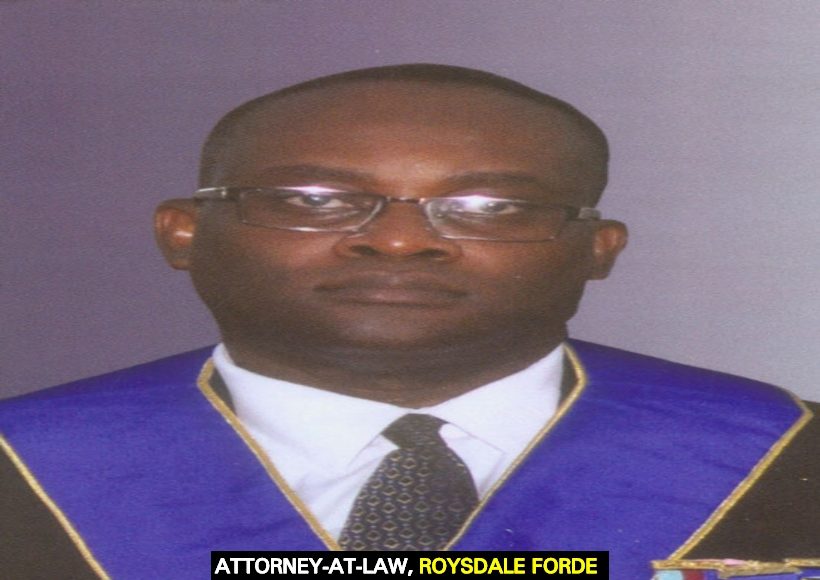By Abena Rockcliffe-Campbell
Constitutional Lawyer, Roysdale Forde moments ago told Guyana Standard that he is pleased with the ruling of the Appeal Court to the effect that 34 votes was needed to pass the no-confidence motion. Being that only 33 parliamentarians voted for the motion, it cannot be considered as passed.
Forde, who was one of the lawyers representing the Government in its appeal of this matter, said that the ruling vindicates government and demonstrates that its position not to acknowledge the vote as proper is meritorious, substantial and sound.
Forde said that it is now up to the opposition to “take the necessary steps to overturn the court of appeals decision.”
Attorney-at-Law, Nigel Hughes told Guyana Standard that he was not surprised with the ruling of the court.
Hughes said, “I think the respondents, that is, the other side, will review the decisions and will advise themselves about whether they want to proceed to an appeal. I suspect that they would want to go to the Caribbean Court of Justice (CCJ) as is their right and if they elect to exercise that option then that is good. We would get a ruling from the highest court of the land as to what constitutes an absolute majority.”
While the seasoned attorney was the first to point out last year that the motion requires 34 and not 33 votes, he said he does not feel vindicated. Hughes said that the issue is not about him.
“I am happy with the results, of the court’s interpretation. I had expressed an opinion because I thought the country had suffered from an error in judgment and it needed to be clarified once and for all…And I always believe that where you have an opportunity to remove areas of contention, especially political areas of contention, remove it from uncertainty by a ruling of the court. So for me, it is not a question of feeling vindicated. Guyana needed to get a decision and hopefully now, we will move on whether we go to the CCJ or whether the ruling is accepted,” expressed Hughes.
Furthermore, the lawyer said that he is always disappointed when the leadership of the country does not adopt a path to resolution that does not bring the citizenry into conflict. In this regard, he was referring to the fact that Opposition Leader, Bharrat Jagdeo was stoking fears that Guyana was heading into unconstitutional territory today, that the government becomes illegal and that there would be nationwide protests followed by calls for sanctions from the international community.
Hughes concluded, “Unfortunately, I think in this instance, our people were being brought into conflict with each other and I think this could have been handled differently.”











